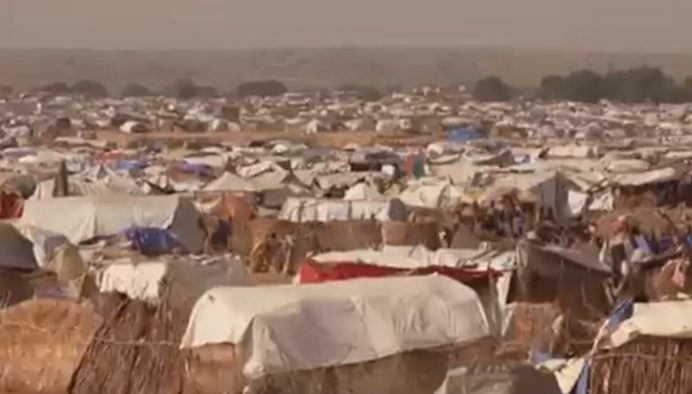Crisis in Sudan: More than 1.2 million Sudanese Refugees in Chad Face Humanitarian Neglect

Over 1.2 million Sudanese refugees in Chad are facing a worsening humanitarian crisis, as the ADH urges urgent international action to fund aid, protect civilians, and support host communities.
Since the outbreak of war in Sudan in April 2023, more than 13 million people have been displaced within the country and across its borders. Nearly 4 million have fled to neighboring countries, including over 1.2 million to Chad—now at the epicenter of a silent humanitarian crisis.
In El-Fasher and Zamzam, violence has reached unbearable levels. Refugees recount chilling experiences of looting, rape, and summary executions. They describe the situation as extremely dire.
In the remote regions of Darfur, ongoing clashes continue to push thousands of families westward. The continuous influx of refugees has forced Chadian authorities and humanitarian agencies to open a new transit camp in Tine, 180 kilometers north of Adré. Since the end of April, over 46,000 people have found precarious shelter there.
However, reports indicate that this shelter remains inadequate. Living conditions are extremely harsh.
The World Food Programme (WFP) is sounding the alarm over the worsening crisis. Its regional coordinator in Sudan, Shaun Hughes, has warned of a critical lack of funding, emphasizing that the Sudanese conflict represents a true regional humanitarian crisis. Without new contributions, he cautions, aid to refugees could be completely suspended in the coming months. According to Hughes, these populations deserve protection and support, rather than being left to sink further into hunger and despair.
Resources are dwindling, notably due to the withdrawal of major donors. Under the Trump administration, the United States had already reduced its foreign aid, even as humanitarian needs surged. To date, the UN reports that the funding appeal for refugees in Chad has been met at only 13%.
Faced with this humanitarian emergency, the Human Rights Agency (ADH) is calling for swift international mobilization and proposes several concrete measures:
1. Increased funding: Donor countries must boost their contributions to meet immediate needs for food, water, healthcare, and shelter.
2. Humanitarian corridor: Establish a secure corridor to ensure unhindered delivery of aid and facilitate the evacuation of civilians trapped in conflict zones.
3. Support to host communities: Chadian populations hosting refugees must also receive increased assistance to prevent tensions and avoid exhausting local resources.
4. Political resolution: Without a political solution to the conflict, the humanitarian crisis will continue to worsen. The international community must intensify efforts to encourage peace talks.
5. Relocation and integration programs: Develop programs that enable refugees to rebuild their lives with dignity by offering opportunities for education, employment, and housing.

